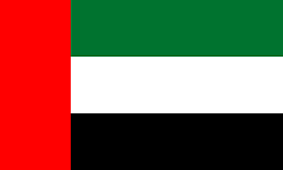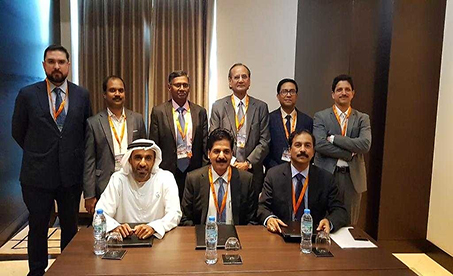
India: KIOCL Signs MoU to Sell High Grade Pellets to Emirates Steel

SteelMint in conversation with Mr. MV Subba Rao, Chairman cum Managing Director of KIOCL learned that KIOCL has also signed MoU for the supply of pellets to Japan’s JFE Steel for the supply of 200,000 MT pellets apart from the MoU with Emirates Steel.
The company has taken up many initiatives like multiple sourcing of raw materials, effective utilization of coastal transportation, and indigenization of various raw materials, proper inventory management system, and stringent austerity measures, etc.
DR Pellet short supply in MENA region-:
Vale’s pellets production was impacted by 11MnT pa, as a result of the stoppage of the Fábrica and Vargem Grande pelletizing plants.
Filling up the gap of DR grade pellets supply is a matter of concern especially for DRI producers in the Middle East and North Africa region such as Saudi Arabian steel major Emirates Steel and Ezz Steel and Beeshay Steel in Egypt who are mostly reliant on Vale shipments.
However, MENA manufacturers are looking for DR grade pellets supply alternative after Vale incident, with Fe content in the range of 63-67% and less than 1% Al.
Indian mills aiming to produce DR Grade pellets to offset Vale shortfall-:
Amid lower demand from China for pellets following Vale incident in Jan 2019, India pellet makers are actively exploring the non-Chinese market to exports. Demand seems to be robust from Europe, Japan, Korea, and MENA regions.
KIOCL targets 2.6 MnT pellet output for FY'20-:
KIOCL is working to increase its pellet production by 20% in FY20 at Mangaluru plant, which has an installed capacity of 3.5 MnT. With an aim to get the benefits of low logistic cost, KIOCL is planning to focus on coastal markets of Visakhapatnam and Gujarat. Company was allocated around INR 200 crore to modernizing Mangaluru based pellet plant for upgrading its existing technology and logistics system.
Company’s production has recorded at 2.24 MnT, above the set target of 2.17 MnT in FY’19. However, the production marked 4% drop Y-o-Y as against FY’18 production at 2.33 MnT amidst 30-day operation halt owing to material shortage.



Trump weighs using $2 billion in CHIPS Act funding for critical minerals

Codelco cuts 2025 copper forecast after El Teniente mine collapse

Electra converts debt, launches $30M raise to jumpstart stalled cobalt refinery

Barrick’s Reko Diq in line for $410M ADB backing

Abcourt readies Sleeping Giant mill to pour first gold since 2014

Nevada army depot to serve as base for first US strategic minerals stockpile

SQM boosts lithium supply plans as prices flick higher

Viridis unveils 200Mt initial reserve for Brazil rare earth project

Tailings could meet much of US critical mineral demand – study

Kyrgyzstan kicks off underground gold mining at Kumtor

Kyrgyzstan kicks off underground gold mining at Kumtor

KoBold Metals granted lithium exploration rights in Congo

Freeport Indonesia to wrap up Gresik plant repairs by early September

Energy Fuels soars on Vulcan Elements partnership

Northern Dynasty sticks to proposal in battle to lift Pebble mine veto

Giustra-backed mining firm teams up with informal miners in Colombia

Critical Metals signs agreement to supply rare earth to US government-funded facility

China extends rare earth controls to imported material

Galan Lithium proceeds with $13M financing for Argentina project

Kyrgyzstan kicks off underground gold mining at Kumtor

Freeport Indonesia to wrap up Gresik plant repairs by early September

Energy Fuels soars on Vulcan Elements partnership

Northern Dynasty sticks to proposal in battle to lift Pebble mine veto

Giustra-backed mining firm teams up with informal miners in Colombia

Critical Metals signs agreement to supply rare earth to US government-funded facility

China extends rare earth controls to imported material

Galan Lithium proceeds with $13M financing for Argentina project

Silver price touches $39 as market weighs rate cut outlook

















